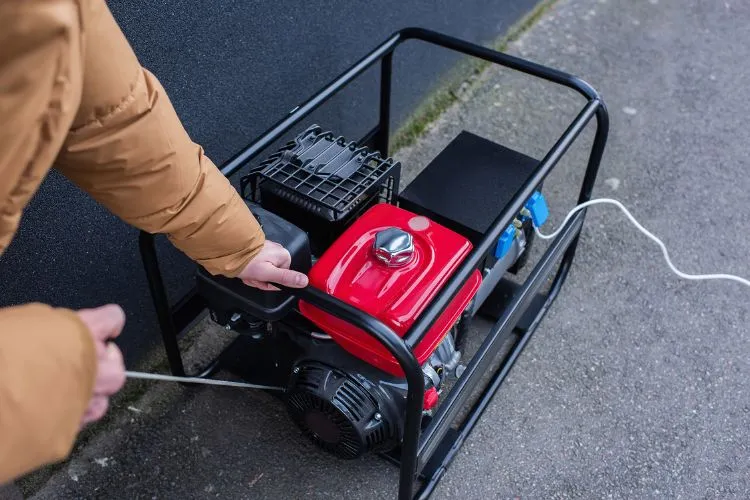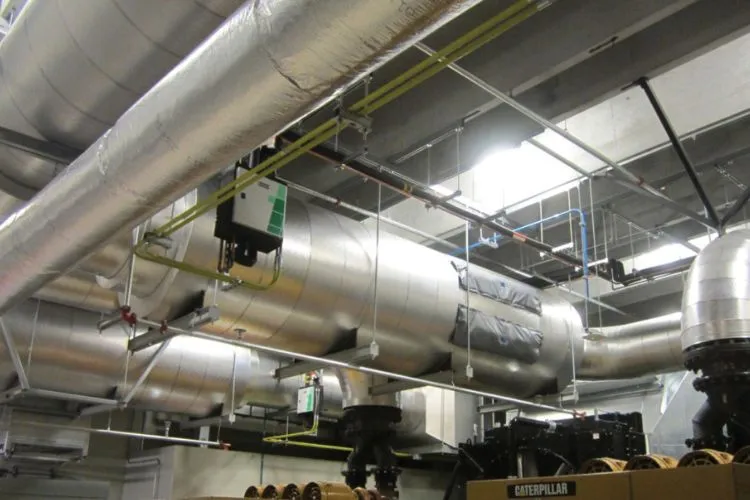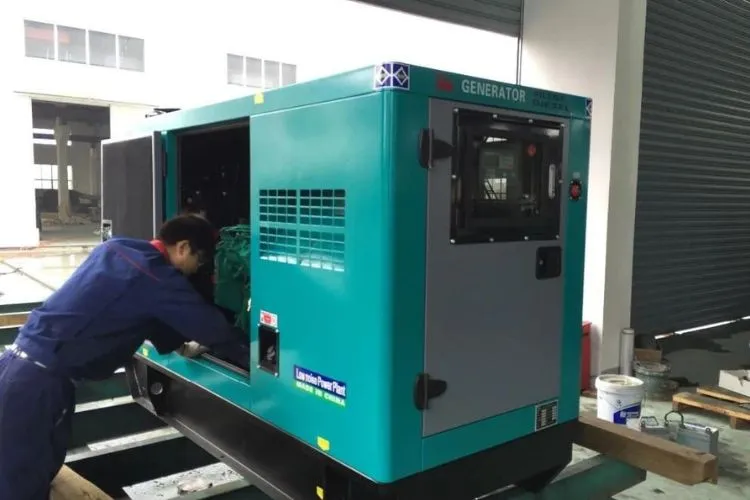Generators have become a staple in both homes and businesses, offering a reliable source of power during outages.
Understanding the main components of a generator can help you make informed decisions when purchasing or maintaining one.
This article breaks down the critical parts of a generator and their functions.

The Basics of Generator Operation
Generators convert mechanical energy into electrical energy, a process made possible by electromagnetic induction.
This operation is vital during power disruptions, ensuring that activities that require electricity continue without major hitches.
What Are The Main Components Of A Generator?
Engine
The engine provides the necessary mechanical energy that the generator converts into electrical power. Its size directly correlates with the amount of power the generator can produce.
Depending on the model, generators use diesel, gasoline, or natural gas as fuel. The choice of engine affects the generator’s efficiency, cost, and maintenance requirements.
Alternator
The alternator, comprising the stator and rotor, is the heart of the generator where electrical energy production occurs.
Its primary role is to convert the engine’s mechanical energy into electricity. High-quality insulation and efficient cooling are critical for the alternator’s longevity and performance.
Fuel System
This system fuels the engine. It includes the fuel tank, pump, and injector, which work together to ensure a steady supply of fuel to the engine. Maintaining the fuel system is crucial for the generator’s reliability and efficiency.
Voltage Regulator
This component regulates the generator’s voltage output. It ensures the produced electricity is at the right voltage to power your devices safely.
Various types of voltage regulators offer different advantages, but all serve the critical role of stabilization.
Cooling and Exhaust Systems
Generators produce a lot of heat. Without proper cooling, they can overheat, causing damage. The cooling system keeps the temperature under control.
Simultaneously, the exhaust system manages and expels the fumes generated by the engine. Ensuring these systems are in good condition is essential for safe and efficient operation.

Lubrication System
Regular lubrication reduces friction and wear in the generator’s moving parts, ensuring smooth operation.
Different generators require different types of oil, and checking the oil level should be part of regular maintenance tasks.
Battery Charger
The battery charger is a critical component that keeps the generator’s battery charged. Many modern generators come with automatic chargers to ensure the battery is always ready to start the generator.
Control Panel
The control panel is the user interface of the generator. Today, many generators feature digital control panels, which make monitoring and managing the generator’s performance more straightforward.
Frame
The frame encloses and supports all the generator’s components. It is designed to be durable and protect the internal parts from environmental elements.
Choosing the Right Generator
Selecting a generator involves considering the quality and reliability of its components. A well-designed generator with high-quality components will offer better performance and longer service life.
Maintenance Tips
Routine maintenance is key to a generator’s longevity and reliability. Following the manufacturer’s recommended schedule can prevent common issues and ensure efficient operation.
Safety Precautions
When using generators, prioritizing safety is crucial to prevent accidents and ensure secure operation. Key safety tips include ensuring adequate ventilation to avoid carbon monoxide buildup, which can be lethal.

Always operate generators outdoors, away from windows or enclosed spaces. Adhere to electrical safety by avoiding overloading the generator and using heavy-duty, outdoor-rated extension cords.
Ensure the generator is dry and never touch it with wet hands to prevent electrocution. Proper fuel storage is paramount; store fuels in approved containers away from living areas or potential sources of ignition.
Regulations and Building Codes
Compliance with local regulations, permits, and building codes is essential when installing and operating a generator. These regulations are designed to ensure safety and environmental protection.
They vary by location and can cover aspects such as noise levels, emission standards, and installation requirements.
Prior to installation, consult with local authorities to obtain necessary permits and ensure your setup meets all local building codes and zoning laws.
This step not only ensures legal compliance but also enhances safety by aligning with established safety standards and practices, safeguarding you and your community.
Case Studies and Testimonials
Generators have been lifesavers in emergencies, ensuring hospitals and shelters remain operational during disasters. Businesses depend on them for uninterrupted operations.
Testimonials praise their reliability, like a farmer keeping produce fresh during outages and a family maintaining comfort during a blackout.
Frequently Asked Questions (FAQs)
Can a generator run continuously?
Generators can run continuously for extended periods, but it varies by model and engine type. Regular breaks and maintenance are necessary to prevent long-term damage.
How long do generators typically last?
The lifespan of a generator depends on its design, usage, and maintenance. With proper care, a generator can last for decades.
Are there generators that can automatically start in the case of a power outage?
Yes, many modern generators have an automatic start feature, allowing them to begin operating immediately after detecting a power loss.
What is the difference between kW and kVA when referring to generators?
kW (kilowatts) measures the power a generator can produce, while kVA (kilovolt-amperes) measures the apparent power. The difference lies in the efficiency and the electrical load the generator can handle.
How often should generator components be replaced or serviced?
The frequency of service or replacement varies by component and generator usage. Consulting the manufacturer’s guidelines and performing regular checks will help determine the need for maintenance.
Conclusion:
Understanding the main components of a generator is essential for anyone looking to purchase, use, or maintain one.
Considering these parts individually and as a whole can help ensure your generator serves you well for years to come.
